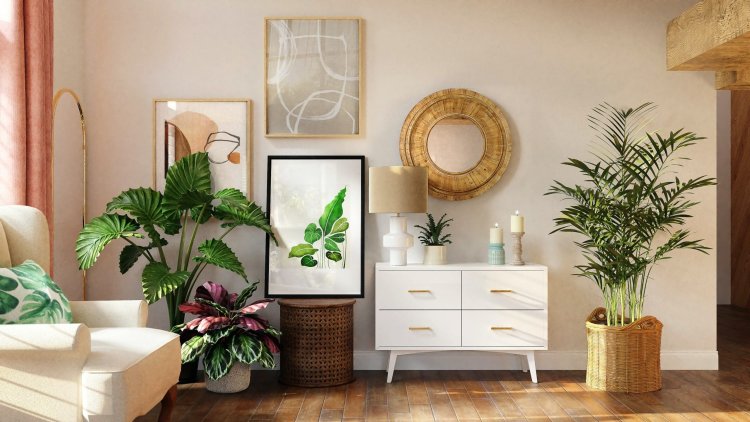The Healthiest Plants For Your House

Houseplants may be beneficial to your health; in fact, NASA has validated the health advantages of having specific species in your house. Which options are the best?
Plants extract carbon dioxide from the atmosphere and generate oxygen through photosynthesis. They are also capable of absorbing hazardous compounds from the air.
Plants boost the amount of oxygen in your house, which may help to lessen headaches, enhance focus, and overall mood.
They also raise the humidity level in your house, which may aid in the relief of dry skin.
Caring for houseplants might be beneficial to your mental health as well. These seven varieties are excellent options for the house.
Spathiphyllum
This plant is simple to nurture, making it ideal for novices who are unsure about their abilities to keep houseplants alive.
Numerous studies indicate that it is also beneficial to indoor air quality. According to a study released in December 2021, staphylococci aid in the removal of CO2 and formaldehyde from the air.
The plant contains calcium oxalate, a substance that can irritate the stomach and respiratory tract if consumed in large quantities.
Medium to low lighting suits it, but it is more likely to bloom in strong, indirect light
Golden creeper
Another plant that is simple to care for. It has a lovely appearance due to its heart-shaped leaves, and it is also a natural air cleanser. According to one study released in July 2017, it can successfully lower indoor ozone levels.
Remember that it includes oxalate, which is hazardous to pets if consumed. This plant is low-maintenance and is also a wonderful alternative for folks who do not have regular watering practices.
Sanseveria
This plant has long green sword-like leaves that are attractive and lovely. Growing sansevieria in your house can also help you breathe easier: it was included in a NASA study that eliminated pollutants from the air.
Because he enjoys warmer temperatures, keep it in a warm location in your house. It prefers strong indirect light, but if you put it in a shaded spot, it should be OK (although it will grow a little slower). Allow the soil to dry in between waterings.
Indoor ivy
Ivy is commonly seen outdoors, but the interior form is as beneficial. According to a 2015 study, this plant proved successful in decreasing the levels of carbon dioxide and formaldehyde in the air in a laboratory setting. But keep an eye on your pets since ivy is harmful to cats and dogs.
Ivy thrives in areas with bright indirect light. Use a pot with adequate drainage and water the ivy thoroughly before allowing the soil to dry before watering again.




























